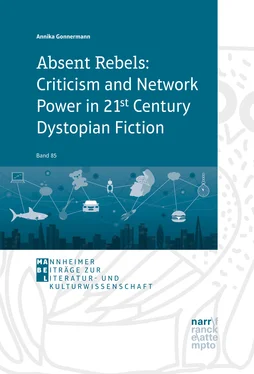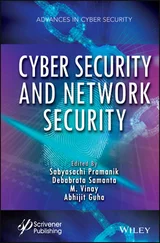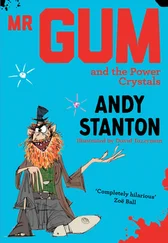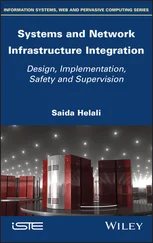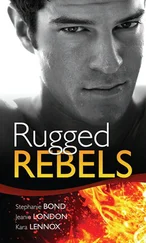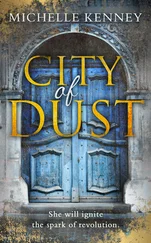Annika Gonnermann - Absent Rebels - Criticism and Network Power in 21st Century Dystopian Fiction
Здесь есть возможность читать онлайн «Annika Gonnermann - Absent Rebels - Criticism and Network Power in 21st Century Dystopian Fiction» — ознакомительный отрывок электронной книги совершенно бесплатно, а после прочтения отрывка купить полную версию. В некоторых случаях можно слушать аудио, скачать через торрент в формате fb2 и присутствует краткое содержание. Жанр: unrecognised, на английском языке. Описание произведения, (предисловие) а так же отзывы посетителей доступны на портале библиотеки ЛибКат.
- Название:Absent Rebels: Criticism and Network Power in 21st Century Dystopian Fiction
- Автор:
- Жанр:
- Год:неизвестен
- ISBN:нет данных
- Рейтинг книги:3 / 5. Голосов: 1
-
Избранное:Добавить в избранное
- Отзывы:
-
Ваша оценка:
- 60
- 1
- 2
- 3
- 4
- 5
Absent Rebels: Criticism and Network Power in 21st Century Dystopian Fiction: краткое содержание, описание и аннотация
Предлагаем к чтению аннотацию, описание, краткое содержание или предисловие (зависит от того, что написал сам автор книги «Absent Rebels: Criticism and Network Power in 21st Century Dystopian Fiction»). Если вы не нашли необходимую информацию о книге — напишите в комментариях, мы постараемся отыскать её.
Absent Rebels: Criticism and Network Power in 21st Century Dystopian Fiction — читать онлайн ознакомительный отрывок
Ниже представлен текст книги, разбитый по страницам. Система сохранения места последней прочитанной страницы, позволяет с удобством читать онлайн бесплатно книгу «Absent Rebels: Criticism and Network Power in 21st Century Dystopian Fiction», без необходимости каждый раз заново искать на чём Вы остановились. Поставьте закладку, и сможете в любой момент перейти на страницу, на которой закончили чтение.
Интервал:
Закладка:
Very few researchers have yet paid attention to this new kind of dystopian fiction. The focus of critical research still lies on the reproduction of knowledge about classical dystopian fiction rather than examining the radical modifications of the genre. In general, most researchers limit their corpora of research to works of fiction produced before the year 2000. In his comprehensive work Die anti-utopische Tradition (2001). Stephan Meyer recapitulates the motif of the rebel and its defining quality for dystopian fiction by looking at novels published before the 1950s, thereby ignoring a vast proportion of the canon. Equally extensive but equally limited (in this case, to fiction written before 1980) is M. Keith Booker’s survey Dystopian Literature (1994). Moreover, Booker states that “[v]irtually any literary work that contains an element of social or political criticism” (3) can be classified as dystopian, including works like James Joyce’s Dubliners (1914). His anthology thus deteriorates into a rather oversimplified account of the genre, lacking a clearly defined scholarly access to dystopian fiction. Also restricted to the classics and descriptive rather than analytical is Julia Hachtel’s Die Entwicklung des Genres Antiutopie (2007), which pays attention to Huxley’s Brave New World and Atwood’s The Handmaid’s Tale , among others. While David Stock ( Modern Dystopian Fiction and Political Thought , 2019) focuses on the intriguing history of dystopia and critique, he reduces his approach to books written half a century ago, with Katharine Burdekin’s (alias Murray Burdekin’s) Swastika Night (1940) as his most recent object of study. David Lorenzo uses dystopian classics to reflect critically on political beliefs and ways of life in his Cities at the End of the World (2014), yet equally limits his area of research to classical dystopian fiction. While the encyclopaedic surveys by Mark Bould ( The Routledge Companion to Science Fiction , 2010), Gregory Claeys ( The Cambridge Companion to Utopian Literature , 2010), M. Keith Booker and Anne-Marie Thomas ( The Science Fiction Handbook , 2009) or Edward James and Farah Mendlesohn ( The Cambridge Companion to Science Fiction , 2003) offer a thorough introduction to the classics of the genre, they focus on the canon, providing an introductory basis for those starting out in the field of research on utopian fiction.
Eckart Voigts-Virchow and Alessandra Boller are one step ahead. They include contemporary dystopian fiction in their study Dystopia, Science Fiction, Post-Apocalypse – Classics – New Tendencies – Model Interpretations (2015) such as Kazuo Ishiguro’s Never Let Me Go or Suzanne Collins’ The Hunger Games . However, they blur the generic definitions of post-apocalyptic fiction and dystopia too much when they refer to Cormac McCarthy’s apocalyptic nightmare The Road (2006) as ‘post-apocalyptic dystopia.’ The same is true for Worlds Gone Awry. Essays on Dystopian Fiction (2018) edited by Han, Triplett, and Anthony. While both Alessandra Boller in Rethinking ‘the Human’ in Dystopian Times (2018) and Elena Zeißler in Dunkle Welten (2008) have correctly identified the need for a new classification of dystopian fiction by advocating a focus on newer works of dystopian fiction such as Margaret Atwood’s MaddAddam trilogy (2003–2013) or even post-colonial dystopias such as Albert Wendt’s Black Rainbow (1992), the latter’s structuralist approach remains unconvincing. Zeißler’s classification system differentiates, for instance, between feminist and postmodern dystopias, thereby ignoring the fact that these two categories might be applied at the same time. Christine Lehnen ( Defining Dystopia , 2015) also attempts to redefine the genre. Having identified the generic boundaries as being too narrow and arguing for a re-negotiation of the genre characteristics, she opts to build her reader-oriented classification on the premise whether the didactic appeal is fully recognized by the audience – a rather broad and uncritical classification since almost any literature can be described as ‘offering a warning’ ever since Horaz defined its general function as ‘prodesse et delectare.’
Enlightening, however, is the collection of essays published by Raffaella Baccolini and Tom Moylan in Dark Horizons (2003). They critically engage with new developments of the genre outside the paradigm of state criticism. Tom Moylan is one of the first scholars to describe a paradigmatic change in dystopian fiction. His essay “State, Agency, and Dystopia in Kim Stanley Robinson’s Antarctica and Ursula K. Le Guin’s The Telling ” (2003) should serve as a rudimentary basis for the current project; it describes the transition from a state-focused critique to criticism focused on neoliberal capitalism, globalisation, and network-thinking, which shape the society at the beginning of the 21 stcentury – tendencies progressive dystopian fiction undoubtedly reacts to. Also, Moyan’s work on the ‘critical utopia’ has undoubtedly influenced the ideas presented in this book.
While research usually focuses purely on the content of dystopian writing, the meta-analysis of forms of critique has thus far largely escaped scholarly attention. This is the reason why the following thesis has a second aim (besides offering an explanation for the absent rebels and tracing the change from state totalitarianism to free market capitalism dystopia): it will analyse the prevailing modes of formulating critique within dystopian fiction in general. The basis for this differentiation is to be found in Rahel Jaeggi’s Kritik von Lebensformen (2014; Critique of Forms of Life , trans. 2018), a philosophical enquiry into what constitutes ‘the good life.’ Her terminology offers the subtle nuances necessary for categorising the process of voicing critique and is thus perfectly suited for a detailed look at how dystopian fiction approaches the socio-cultural reality of the 21 stcentury. Moreover, tracing the use of Jaeggi’s ‘external criticism’ and ‘immanent criticism’ in classical dystopian fiction and contemporary dystopian fiction respectively, this analysis will draw attention to a genealogical change in the formulation of critique within the dystopian canon. Connecting Jaeggi’s ‘immanent criticism’ and David Grewal’s ‘network power’ ( Network Power , 2008), this analysis will examine the nature of power – a hallmark of dystopian writing – within free market capitalism. I will treat the dialectics between perceived freedom and actual freedom (‘voluntariness’) as a yardstick for deciphering oppression within seemingly free neoliberal societies, and offer an explanation for how and where coercion originates in systems that lack a Machiavellian centre of power.
After the introduction of both the etymology and history of dystopian fiction in “The Dystopian Genre,” the chapter “Context, Criticism, and Rahel Jaeggi’s Critique of Forms of Life (2014)” will link classical dystopian fiction with ‘external criticism’ and demonstrate how this model is well suited to criticise structures like totalitarianism. In a second step, the analysis will juxtapose the tradition of classical dystopian writing to the texts produced at the beginning of the 21 stcentury, ending with the observation that ‘external criticism’ is replaced by ‘immanent criticism’ within certain novels. By elaborating on the observation that the socio-cultural reality of the 21 stcentury has changed dramatically (key developments include globalisation, neoliberal capitalism, and the resulting decline of the nation state), this analysis shall demonstrate how the construction and literary focus of selected contemporary dystopias published since the year 2000 has changed accordingly. Having set the necessary analytical parameters, the project will continue with the theoretical section which begins with the analysis of the five dystopian novels in question. By analysing the dystopian novels by Dave Eggers, Margaret Atwood, M.T. Anderson, David Mitchell, and Kazuo Ishiguro, this book aims to provide a critical approach to recent dystopian fiction that transcends its traditional genre boundaries. Afterwards, this study will conclude with a re-contextualisation of contemporary dystopian fiction within the wider framework of the utopian genre, introducing the terminology of ‘blueprint dystopias’ versus ‘iconoclastic dystopias,’ before discussing the eutopian potential within the dystopias defined by their absent rebels.
Читать дальшеИнтервал:
Закладка:
Похожие книги на «Absent Rebels: Criticism and Network Power in 21st Century Dystopian Fiction»
Представляем Вашему вниманию похожие книги на «Absent Rebels: Criticism and Network Power in 21st Century Dystopian Fiction» списком для выбора. Мы отобрали схожую по названию и смыслу литературу в надежде предоставить читателям больше вариантов отыскать новые, интересные, ещё непрочитанные произведения.
Обсуждение, отзывы о книге «Absent Rebels: Criticism and Network Power in 21st Century Dystopian Fiction» и просто собственные мнения читателей. Оставьте ваши комментарии, напишите, что Вы думаете о произведении, его смысле или главных героях. Укажите что конкретно понравилось, а что нет, и почему Вы так считаете.
